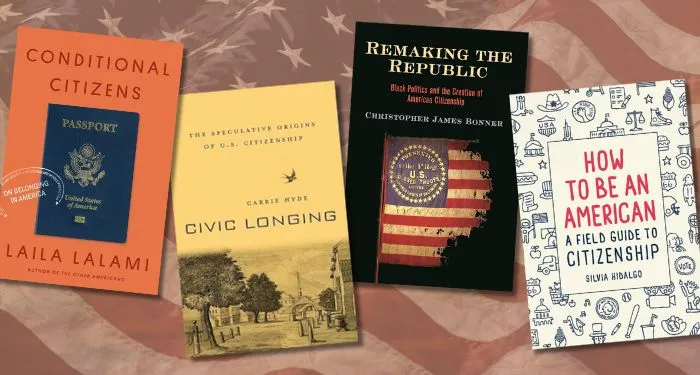
Eight Books About the Complicated History of U.S. Citizenship
In his farewell letter in September 1796, President George Washington repeatedly addressed his “fellow-citizens” as he informed them he would not be seeking an additional term as president. Washington knew that the union which he had served as the first president of was fragile, and he used the concept of citizenship to encourage those reading to aspire to a higher, unified ideal of America that would “concentrate your affections” over local divisions.
Today, Washington’s reference to “citizens by birth or choice, of a common country” sounds nearly identical to the legal understanding of citizenship in the modern United States, but at the time he drafted the address the notion of a citizen as a legal category of a person was new and narrowly defined.
The Naturalization Act of 1790 was the first legislation passed by the U.S. Congress defining citizenship. It stated that “a free white person, who shall have resided within the limits and under the jurisdiction of the United States for the term of two years,” may be admitted to become a citizen, and it also provided that the children born to citizens would become citizens as well. While the law did not specifically exclude white women as citizens, courts historically did not recognize them as such.
Following the Civil War, the passage of the 14th Amendment granted citizenship to “All persons born or naturalized in the United States.” But a lack of court enforcement of this amendment in the Reconstruction Era meant that it’s widespread promise of legal and political rights was not realized.
As immigration and westward movement increased in the 19th and 20th centuries, additional laws and exclusions were passed and debates about citizenship continued as politicians and people wrestled with who got to be an American. As the books below show, the idea of citizenship was not something once defined in the early years of the U.S. as a country, but it is rather a nebulous concept that has been defined and redefined over and over since the nation’s beginnings.
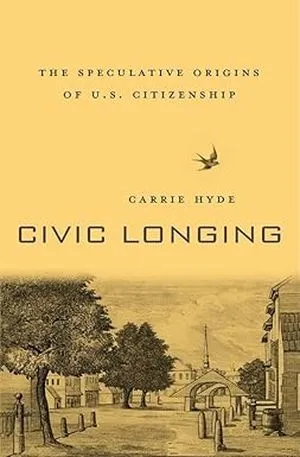
Civic Longing: The Speculative Origins of U.S. Citizenship by Carrie Hyde
What does it mean legally, politically, and culturally, to be a citizen? In this book, Professor Carrie Hyde explores how the modern, political idea of citizenship was debated in the early years of the United States. Hyde explores the years between the Revolutionary War and the writing of the Constitution, as well as the end of the Civil War and the Fourteenth Amendment’s passage in 1868 on citizenship as a legal category.
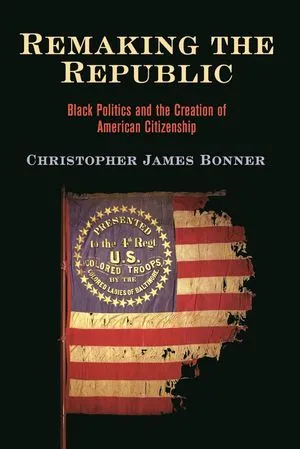
Remaking the Republic: Black Politics and the Creation of American Citizenship by Christopher James Bonner
Christopher James Bonner, a professor of history, looks at the ways African Americans gave meaning to the nebulous concept of American citizenship in the post-Civil War United States. By speaking, writing, and organizing around issues of citizenship, Bonner argues, African Americans created a modern understanding of the rights and responsibilities of an American citizen.
Transform your reading experience! Become an All Access member and unlock a treasure trove of exclusive content—must-read articles, deep dives, and curated recommendations—with unlimited access to 20+ members-only newsletters, community features, and more. Sign up now for only $6/month!

Citizens of a Stolen Land: A Ho-Chunk History of the Nineteenth-Century United States by Stephen Kantrowitz
Kantrowitz looks at how the Reconstruction-era discussions of national birthright citizenship failed to consider or provide legal protections to the Indigenous people of the United States. Working from the perspective of a Wisconsin-based tribe of Ho-Chunk peoples, Kantrowitz offers a little-referenced perspective on the emergence of birthright citizenship.

American by Birth: Wong Kim Ark and the Battle for Citizenship by Carol Nackenoff and Julie Novkov
American by Birth is a history of the 1898 Supreme Court case United States v. Wong Kim Ark that established birthright citizenship for this born within the geographic boundaries of the United States. The Court’s decision, that birthright citizenship extended to the American born children of immigrants who themselves had been denied citizenship, reshaped the nation’s legal understanding of becoming a citizen. It continues to impact discussions around citizenship today.
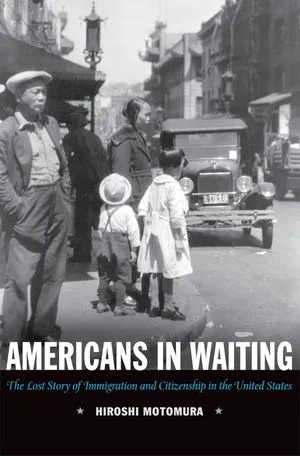
Americans in Waiting: The Lost Story of Immigration and Citizenship in the United States by Hiroshi Motomura
In this expansive text, Professor Hiroshi Motomura compares and contrasts the experiences of immigrants to the United States across two centuries. Examining immigration statutes, deportation laws, and cultural conceptions of whether newcomers should assimilate to their new country, Motomura provides a comprehensive look at how American laws and American attitudes toward immigration and naturalization have shifted over time.
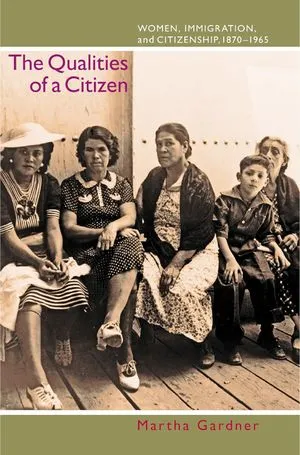
The Qualities of a Citizen: Women, Immigration, and Citizenship, 1870-1965 by Martha Gardner
Historian Martha Gardner digs into discussions about citizenship and immigration with a focus on the laws that have specifically pertained to women throughout U.S. history. Gardner touches on topics like the women who came to the U.S. looking for work as domestic labor, the policies designed to keep prostitutes and unwed mothers from immigrating, and the role of race in deciding which women were allowed in the country.
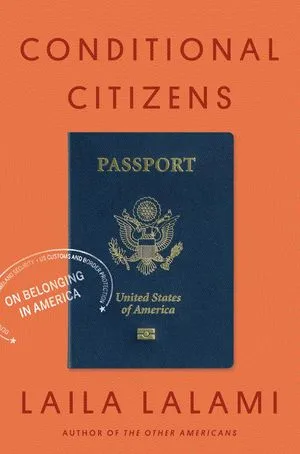
Conditional Citizens: On Belonging in America by Laila Lalami
In Conditional Citizens, award winning writer Laila Lalami explores both her own journey from Moroccan immigrant to U.S. citizen and the ways in which America both embraces and rejects those who gain citizenship. She dives into how factors such as race, religion, language, and social class play into this experience. In searing language that shows the personal impacts of political decisions, Lalami allows readers to gain insight into the complex topic of citizenship.
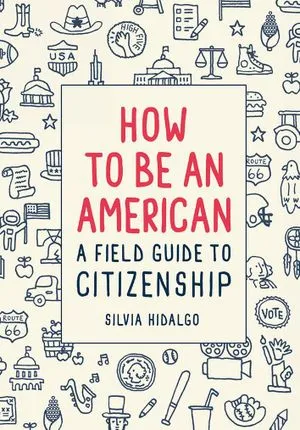
How to Be an American: A Field Guide to Citizenship by Silvia Hidalgo
Finally, here’s a book that presents an interesting and informative look at the material covered by the U.S. citizenship test. When Silvia Hidalgo was studying for her citizenship test, she found the official materials dry and lacking, so she made her own illustrated notes. Now, readers can enjoy her thoughts, notes, and drawings in this engaging book.
If you’re interested in reading more about history and political science in the U.S., check out these books authored by historians and this list of presidential biographies.












